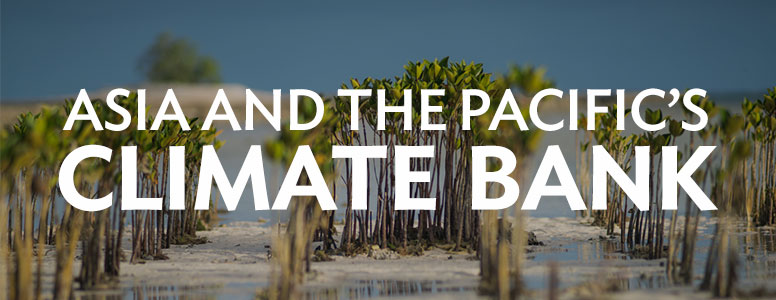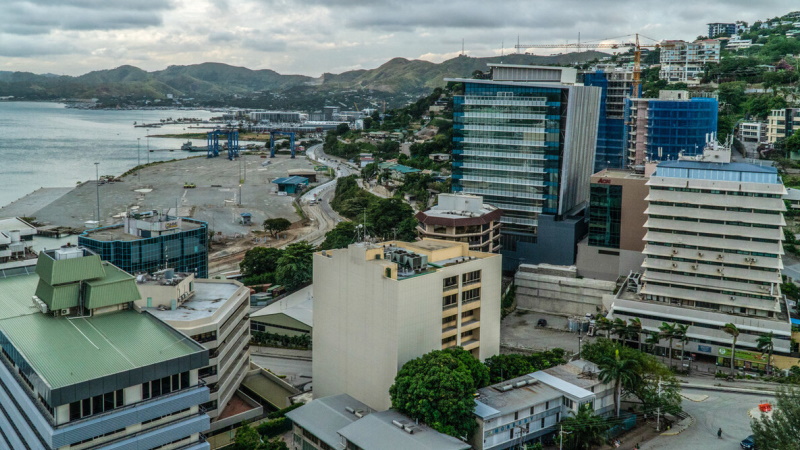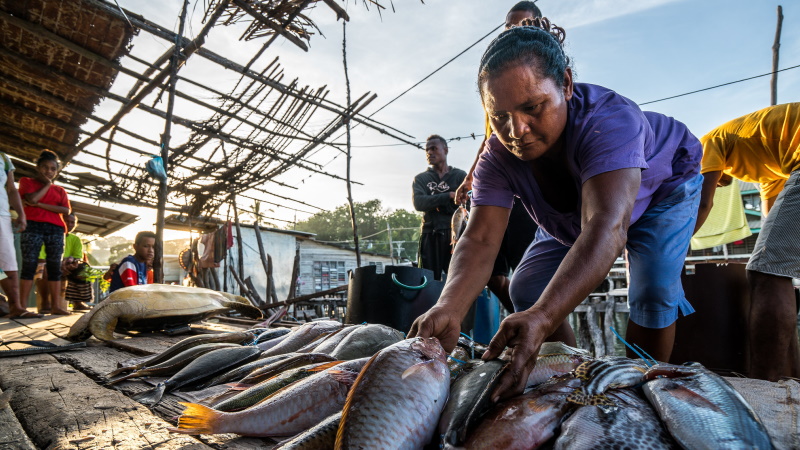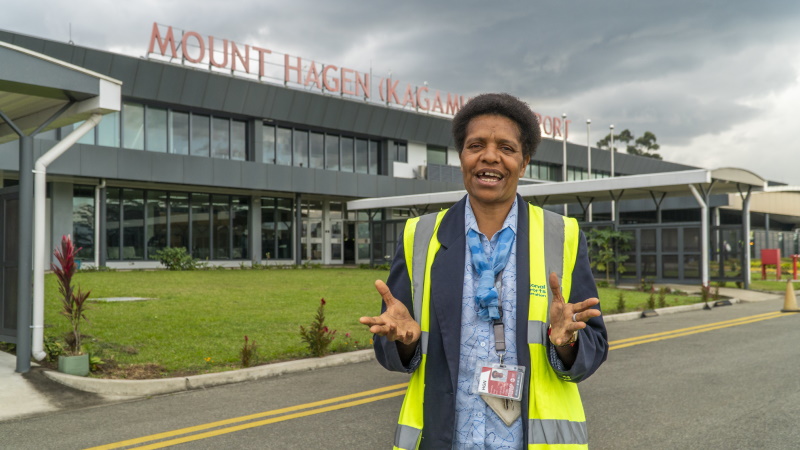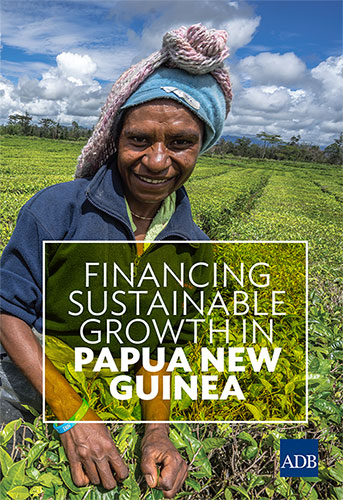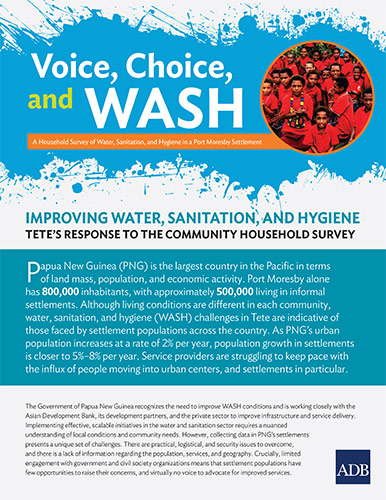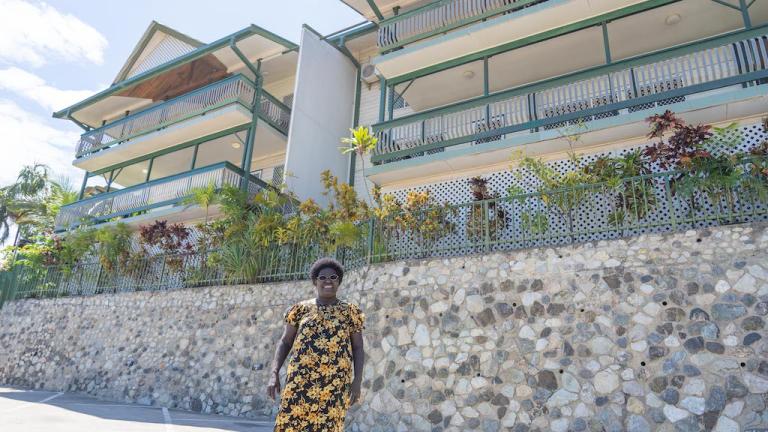Papua New Guinea and ADB
ADB seeks to improve infrastructure and the private sector environment; strengthen governance, financial management, and service delivery; and address inclusivity and build resilience in Papua New Guinea.
In the Spotlight
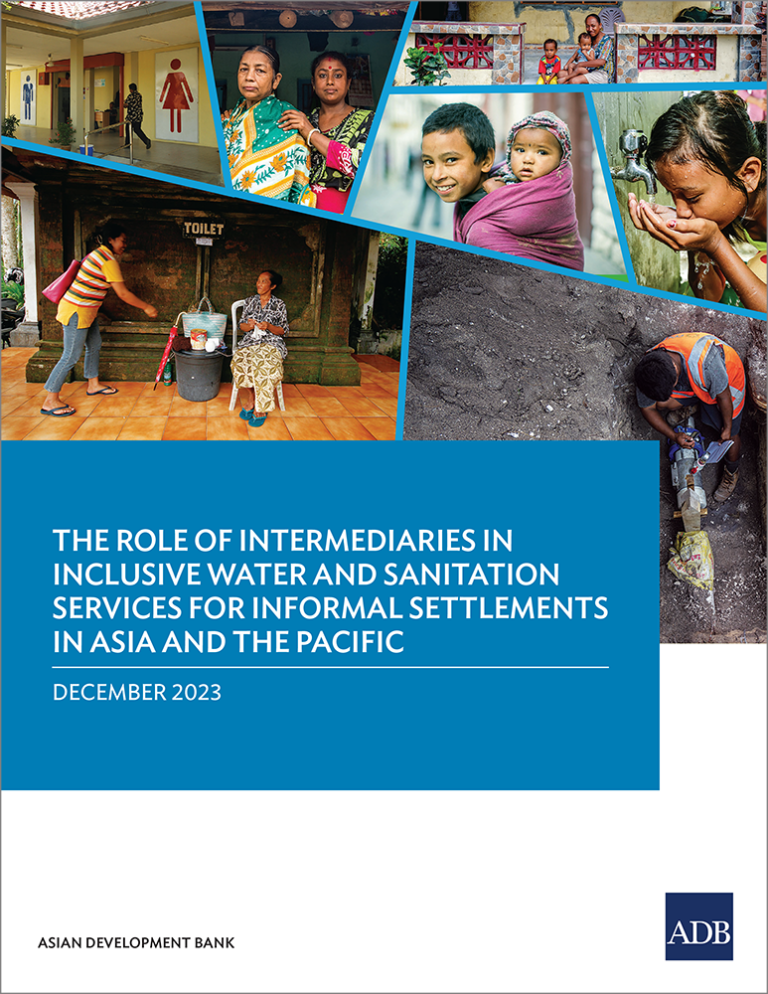
The Role of Intermediaries in Inclusive Water and Sanitation Services for Informal Settlements in Asia and the Pacific
In the Asia and Pacific region, accessing clean water and sanitation is a constant challenge for residents of informal settlements. Informal service providers, or intermediaries, have emerged in response to this significant essential service gap.
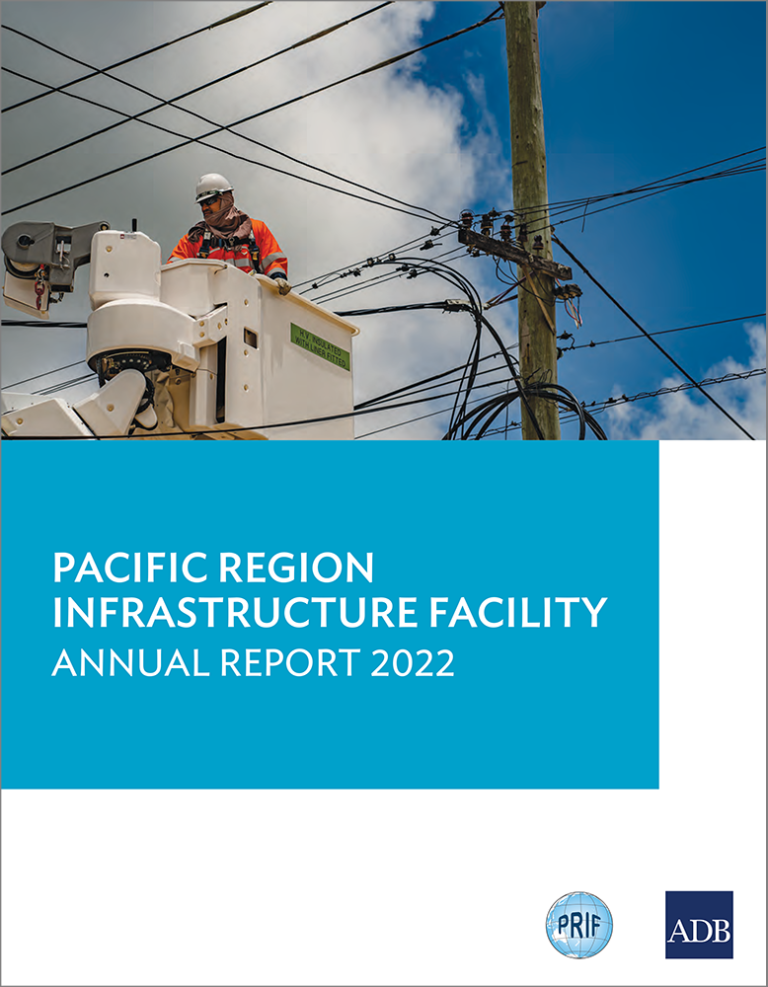
Pacific Region Infrastructure Facility Annual Report 2022
This report provides an overview of the strategic context, activities, and deliverables of the Pacific Region Infrastructure Facility (PRIF) in 2022.
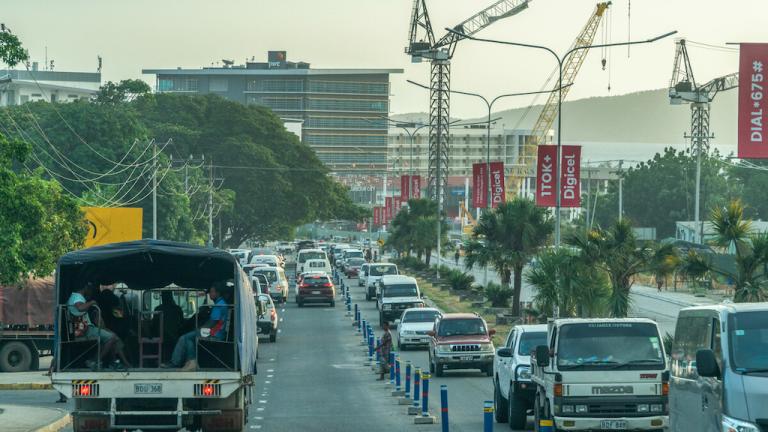
Domestic Resource Mobilization Instrumental for Economic Recovery and Resilience in the Pacific — ADB
The Pacific economy is projected to continue expanding in 2023–2024, but supporting further growth requires additional government resources, according to the latest issue of ADB's Pacific Economic Monitor launched today.
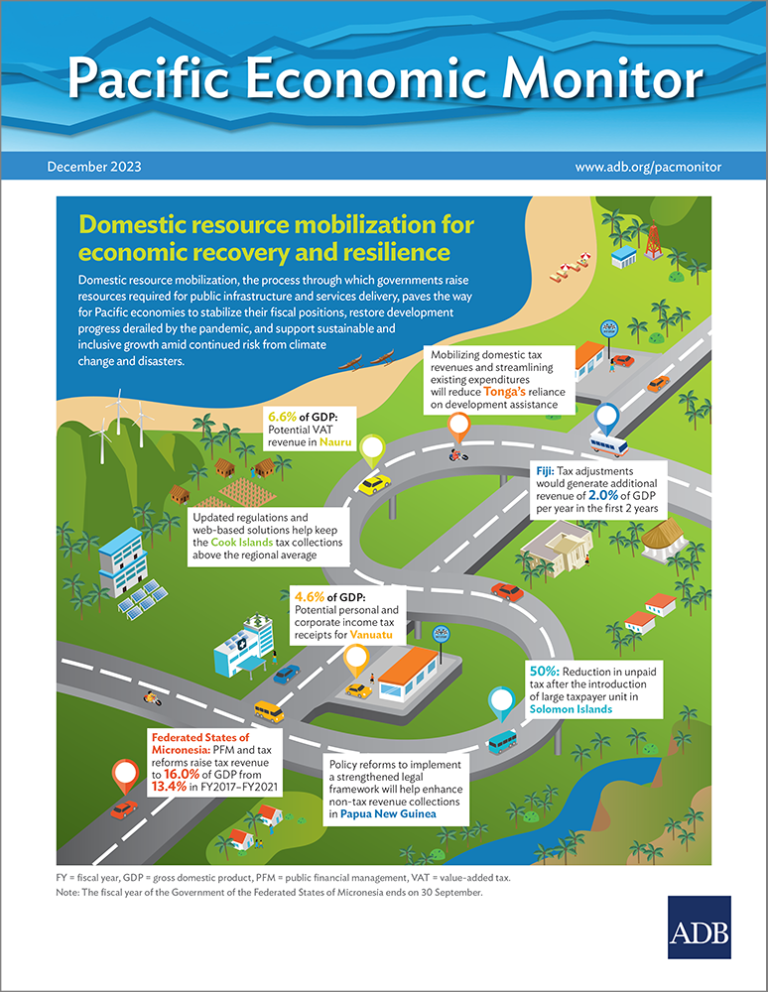
Pacific Economic Monitor – December 2023: Domestic Resource Mobilization for Economic Recovery and Resilience
Continued growth is expected in the Pacific, but governments need to generate additional resources for public infrastructure and services essential to sustaining economic development.
Papua New Guinea Facts
ADB's Work in Papua New Guinea
Papua New Guinea (PNG) is a resource-dependent, lower middle-income country classified by ADB as a fragile and conflict affected situation. In 2022, GDP grew by an estimated 3.2% as economic activity normalized across sectors following the impact of the coronavirus disease (COVID-19) pandemic.
ADB is one of the country’s largest sources of official development assistance, with an average annual lending of $339 million over 5 years from 2017 to 2022. ADB’s support is aligned with the Government of Papua New Guinea’s development plans, including the Medium-Term Development Plan 2018–2022 (see volumes I and II), Development Strategic Plan 2030, and Vision 2050.
Data: Papua New Guinea
A Growing Partnership
Papua New Guinea and ADB have been partners in development since 1971, and the collaboration is growing bigger. A new video series is exploring ADB's contributions to development of the country's energy, health, and transport sectors, as well as its drive for financial inclusion and private sector-led development.
Expanding Access to Health Care in Papua New Guinea
Access to quality health care is a major challenge in Papua New Guinea. The government works with its development partners, like ADB, to make health care more accessible.
New Energy Grid, Transmission Investments are Lighting up Papua New Guinea
Papua New Guinea's energy investment program is expanding access to electricity and lowering costs.
Publications
-
Financing Sustainable Growth in Papua New Guinea
Learn more about ADB's support for financing sustainable economic growth in Papua New Guinea.
-
Voice, Choice, and WASH
This publication discusses the results of a household survey assessing water, sanitation, and hygiene conditions in the Tete settlement of Port Moresby, Papua New Guinea.
ADB Projects in Papua New Guinea View all projects
What's New
-
| News from Country Offices
ADB-Supported PPP Framework to Improve Infrastructure Service Delivery in PNG
-
| Publications, Reports
The Role of Intermediaries in Inclusive Water and Sanitation Services for Informal Settlements in Asia and the Pacific
-
| Institutional Documents, Statutory Reports and Official Records
Pacific Region Infrastructure Facility Annual Report 2022
-
| Publications, Reports
Pacific Economic Monitor – December 2023: Domestic Resource Mobilization for Economic Recovery and Resilience
-
| News from Country Offices
Domestic Resource Mobilization Instrumental for Economic Recovery and Resilience in the Pacific — ADB
-
| News Releases, News from Country Offices
Policy Reforms Will Help Enhance Nontax Revenue Collections in PNG — ADB
-
| Video
ADB-supported CADIP: Helping PNG’s Economy Take Off
-
| News Releases, News Release
ADB Announces More Concessional Lending Terms for Small Island Developing States
Contact: Papua New Guinea Resident Mission (PNRM)
Level 2 – Burns Philp Haus, Corner of Musgrave Street & Champion Parade, PO Box 1992, Port Moresby, National Capital District, Papua New Guinea
Office Hours: 8:00 a.m. to 5:00 p.m. (Monday to Friday)
The Papua New Guinea (PNG) Resident Mission was opened in 2003 and provides the primary operational link for activities between ADB and the government, the private sector, civil society stakeholders, and development partners. The resident mission engages in policy dialogue, country partnership strategy development and programming, and portfolio management, while also acting as a knowledge base on development issues in Papua New Guinea.
PNRM will be closed on these dates:
- New Year's Day: 1 January (Monday)
- Remembrance Day of the Late First Prime Minister: 26 February (Monday)
- Good Friday: 29 March (Friday)
- Easter Monday: 1 April (Monday)
- King's Birthday: 10 June (Monday)
- National Remembrance Day: 23 July (Tuesday)
- National Repentance Day: 26 August (Monday)
- Independence Day: 16 September (Monday)
- Christmas Day: 25 December (Wednesday)
- Boxing Day: 26 December 26 (Thursday)
Last updated: 27 November 2023

